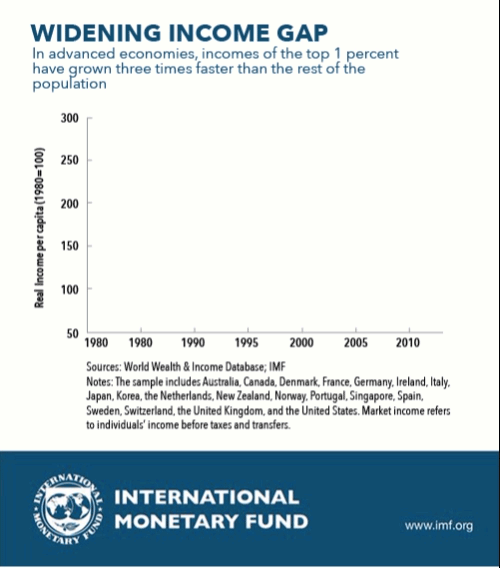As finance ministers and central banks gather in Washington this week for the spring meetings of the IMF and World Bank, income inequality will be among the topics of discussion.
While global economic integration has brought enormous benefits in the form of rising living standards, it has also contributed to widening inequality within some countries. In advanced economies, the incomes of the top 1 percent have grown three times faster than those of the rest of the population over the past three decades.
Why should this be a concern to policy makers? To put it simply, when the benefits of growth are shared more broadly, growth is stronger, more durable, and more resilient.
In a speech on April 12, IMF Managing Director Christine Lagarde outlined steps governments can take to help workers who have been affected by labor-market dislocations, including greater emphasis on retraining and vocational training, job search assistance, and relocation support.
The IMF’s Fiscal Monitor, to be released on April 19, also explains how governments can use taxation and spending to ensure that growth is more equitable.







